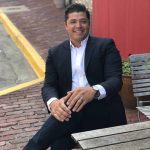In his book, “Think Again,” author Adam Grant – organizational psychologist and professor at the Wharton School of Business – challenges his readers to be open to evolving our way of thinking and the potential benefits of breaking down our long-held biases – both in how we interact with others and in business.
Grant offers techniques, anecdotes, and scenarios that can forever change your thinking. He tells the story of Daryl Davis, a black musician, who, one day in 1983, after playing the piano at a country music gig, was approached by an older white man who was surprised that Daryl could play like Jerry Lee Lewis.
The two sat down for a drink where the older white man confessed that he had never had a drink with a black person before and that he was a part of the KKK. Darryl asked, “How can you hate me when you don’t even know me?”
Their conversation started a friendship, which changed both of them. The Klansman left the KKK, and Daryl sat down with other white supremacists and convinced many to abandon their hatred.
Commenting on the story of Daryl and the Klansman, Grant writes:
“I wanted to understand how that kind of change happens – how to break overconfidence cycles that are steeped in stereotypes and prejudice about entire groups of people. Strangely enough, my journey started at a baseball game.”
In his journey to understand overcoming biases, Grant investigated the deep-rooted hatred between Red Sox and Yankees fans (think Chiefs and Raiders fans) and how to mend fences between the two factions. Grant pulled out all the gap bridging stops, including exploring common ground and humanizing the other side. These didn’t work.
What did work was showing them the ‘arbitrariness of their animosity.’ In other words, getting a Yankee fan to realize that if they had been born in Boston or into a family of Red Sox fans, they likely would have ended up becoming the very thing they despise.
In another section of his book, Grant describes three types of mindsets that prevent us from change:
Preacher – When we hold a fundamentally inarguable idea that we passionately express, protecting our individual ideals as sacred.
Prosecutor – When we pick apart the logic of “the opposition’s” idea to prove our own point, often focusing on the flaws in others’ ideas.
Politician – When the focus is to sway a crowd or sway with the crowd in order to stay in a relative position of power.
Although slightly different in their approaches, the three types of mindsets have a common thread: They all have no interest in what the other side has to say. They’re either focused on changing someone else’s mind or standing their ground. Whatever the approach, the result is the same: The inability to see any other perspective but their own.
I took away from Grant’s book that no matter how embedded our biases or ways of thinking are, there is value to being open to change. Grant challenges us to rethink our deep-seated leanings, and a word he used in the book that caught my attention was “intellectual humility.”
To me, intellectual humility is the ability and willingness to think independently of what we’ve been indoctrinated with and taught and to have the humility to admit maybe what we’ve been taught has been wrong – for example, that you shouldn’t have a drink with a black person, that all white supremacists are beyond redemption or that you should hate all Raiders fans.
Now, when it comes to money and investing, what are your biases?
What is your investment philosophy?
Is it worth examining another way?
The prevalent investment philosophy in this country leans toward Wall Street. Retirement planning is set on autopilot with 401(k)s, mutual funds, and financial planners/advisors marketed as the hands-free solution for your investment needs – albeit for a hefty fee.
For the do-it-yourself investing crowd, there’s day trading and cryptocurrency with their promise of riches. You have to get the timing right.
Does the Wall Street way work?
It works if your goal is barely squeaked by in retirement. It doesn’t work if you’re seeking financial independence and looking to live your best life now and not an inferior life when you’re 65.
Don’t you want something more than just getting by?
Unfortunately, if you go the Wall Street route, all you’ll be doing is squeaking by. The average retail investor fails to keep pace with inflation, and more than 90% of professionally managed funds fail to beat the market. That’s why nobody retires early on their 401(k).
What traditional Wall Street retirement plans lack that ultra-wealthy investors seek for building and maintaining wealth are four essential elements:
Cash Flow.
Appreciation.
Tangibility.
Tax Advantages.
Cash flowing tangible assets that appreciate over time provide investors with two sources of returns, with the cash flow can be reinvested to compound returns. The tangibility of asset hedges against inflation and prevents a total loss of your investment.
At the same time, tax advantages like capital gains treatment and tax deductions and credits allow you to keep more of what you make. Private assets like commercial real estate and ownership in private companies check off all the boxes of the attributes required for building wealth.
Do you have the humility to change your investment philosophy?
Or will you dig in your heels and defend your ways with a preacher, prosecutor, or politician mindset?
For those with the intellectual humility to study and learn about a different way of investing, consider private alternatives for achieving true financial independence and not Wall Street dependence.







